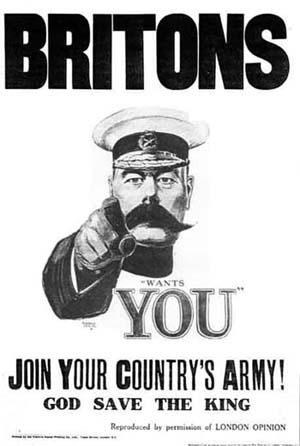 As I have previously argued, World war I, not World war II, is the formative event of our era. Its effects, which include the Second World War are still being played out in Russia, the Balkans and the Middle East.
As I have previously argued, World war I, not World war II, is the formative event of our era. Its effects, which include the Second World War are still being played out in Russia, the Balkans and the Middle East.One of the most famous works on World War I is Barbara Tuchman's Pulitzer Prize-winning book The Guns of August. This work deals with the circumstances and events leading up to the outbreak of the First World War and the stalemate along the Western Front that ensured a war of attrition settled only by the historically contingent and by no means inevitable intervention of the U.S. in 1917.
Tuchman's book is excellent not only as history, but also as analysis and even as drama. Not a work of art, its artistic touches include grand aphoristic language and a sense of suspense that reads as much like narrative fiction as it does a clinical account.
 Neither the actual outbreak nor the course of the war was predetermined. Even up to mobilization the war could have been averted, although, Tuchman argues, the principles often did not see this. Although the reader knows the outcome, through the first half of the book one is kept turning the pages, hoping that war will be avoided. As diplomats and European royalty work sometimes diligently and sometimes fecklessly to achieve some accomodation, others argue that once the wheels are in motion it would be suicide to attempt a delay of action. The Kaiser is shown as too week to avoid a war (one that he both feared and longed for) as well as too conflicted to win it. The effect of Bristish diplomacy was to support France well enough morally that she would not seriously seek to avoid war with Prussia, but not well enough materially to break the German lines once that war broke out. "No more distressing moment can ever face a British government than that which requires it to come to a hard, fast and specific decision," says Tuchman.
Neither the actual outbreak nor the course of the war was predetermined. Even up to mobilization the war could have been averted, although, Tuchman argues, the principles often did not see this. Although the reader knows the outcome, through the first half of the book one is kept turning the pages, hoping that war will be avoided. As diplomats and European royalty work sometimes diligently and sometimes fecklessly to achieve some accomodation, others argue that once the wheels are in motion it would be suicide to attempt a delay of action. The Kaiser is shown as too week to avoid a war (one that he both feared and longed for) as well as too conflicted to win it. The effect of Bristish diplomacy was to support France well enough morally that she would not seriously seek to avoid war with Prussia, but not well enough materially to break the German lines once that war broke out. "No more distressing moment can ever face a British government than that which requires it to come to a hard, fast and specific decision," says Tuchman. One particularly tragic event that Tuchman documents is the bombardment of the Belgian city of Louvain and the destruction of its university library, the oldest in Europe, with the loss of countless unique treasures. Cardinal Désiré Mercier, author of the Manual of Modern Scholastic Philosophy would arise as a hero of the Belgian resistance and of civilzed Europe.
One particularly tragic event that Tuchman documents is the bombardment of the Belgian city of Louvain and the destruction of its university library, the oldest in Europe, with the loss of countless unique treasures. Cardinal Désiré Mercier, author of the Manual of Modern Scholastic Philosophy would arise as a hero of the Belgian resistance and of civilzed Europe.This best-seller has been in print continuously since its publication in 1962. Tuchman's interpretation has influenced historians and the work played a pivotal role in the Kennedy Administration's handling of the Cuban Missile Crisis. Read it as drama, as history, and as a book of ideas.
Pictured are the iconic "you country needs you" poster with Lord Kitchener, killed in WWI, The Kaiser in his warlord costume and the ruins of the library of Louvain University.
No comments:
Post a Comment